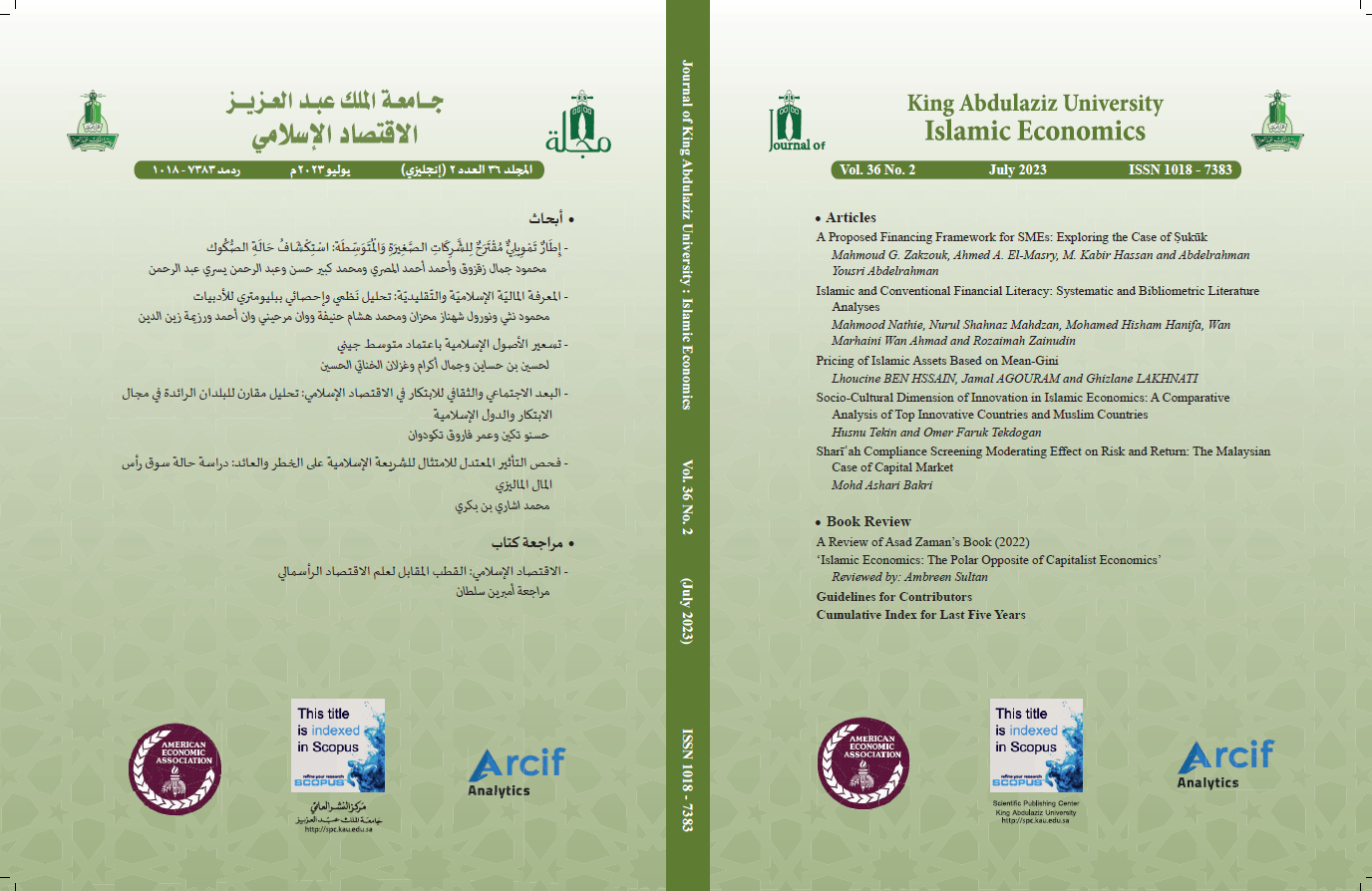Islamic Economics: The Polar Opposite of Capitalist Economics
Main Article Content
Abstract
Islam is a complete way of life. The primary sources of Islamic teachings—the Qur’ān and Sunnah guide Muslims on personal and communal matters in social, commercial, and political spheres to attain falāh (welfare) in this world and the hereafter. The Islamic worldview guides Muslims to act as Khalīfah (vicegerent) and utilize the resources of the planet at their disposal as amānah (trust). Islam sees material sustenance as a means to attain spiritual transformation to elevate humans from their base desires to the content servants of Allah (SWT). In this book, the author explores the diverse and unique aspects of Islamic economic life that emanate from the Islamic worldview. According to the author, the aim of the book is twofold. First, it contests the inclination of contemporary scholars to relate the opposing economic systems—capitalist and Islamic economic system (IES). Second, the detailed survey presents, to the non-Muslim audience, how economic affairs are organized under an Islamic economic system. Towards this end, it highlights unique and diverse aspects of IES that are in stark contrast to the capitalist spirit of economic life. The book comprises eight chapters and follows a systematic flow. After the preface and introduction in chapter one, chapter two traces the origins of Islamic economics. The goals of an Islamic economic system are outlined in chapter three while chapter four discusses the Islamic framework of Sharī’ah (Islamic law). Chapters five, six, and seven outline the role of an Islamic state, the role of Islamic institutions, and the role of Muslim individuals respectively. The book ends with concluding remarks in chapter eight. The book is a valuable addition to Islamic economics discourse, no matter how much we agree and/or disagree with the author's point of view.

